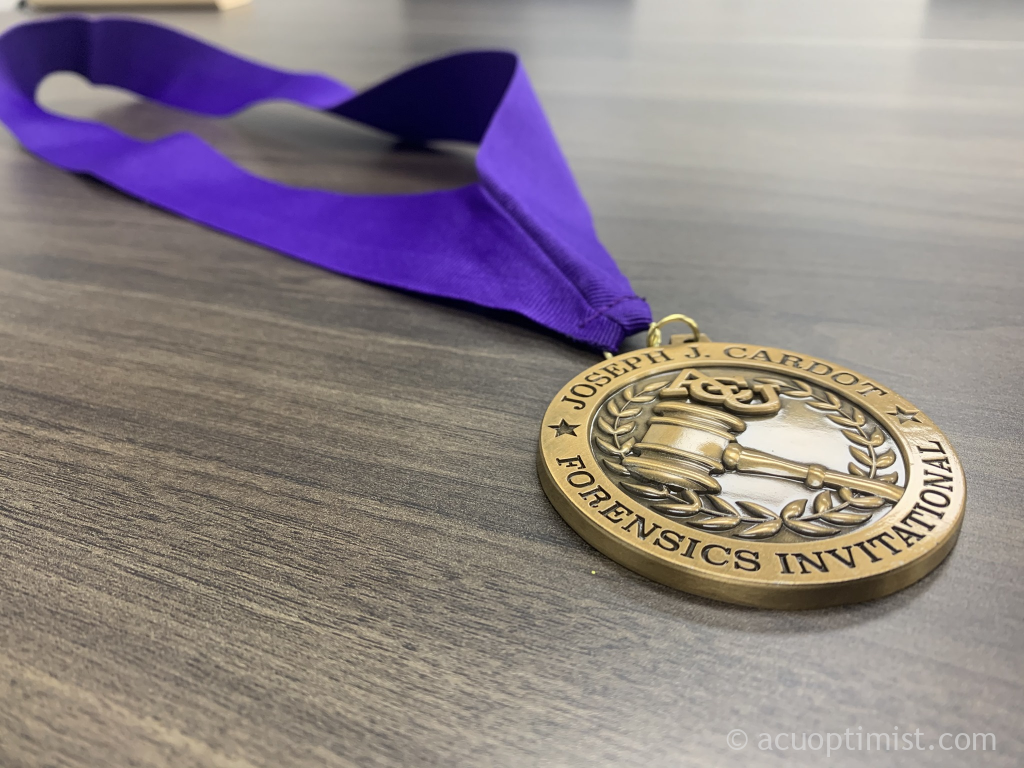The ACU debate team has been succeeding more and more each year that crosses. The team competes in the IPDA, which stands for International Public Debate Association, which is the largest and fastest-growing collegiate debate style in the nation.
There are four divisions within debate: novice, junior varsity, varsity and pro division.
“When we first came on, we were very small,” said Sheila Ritchie, associate college professor for the department of communication and director of forensics and debate. “We would have limited success because we were a small team. We have grown and grown so at this point, we have eighteen debaters on the team.”
Last year at the national tournament, the debate team placed second in the nation, and they missed first place by one point. The team that was in third place was Mississippi State University, and they were behind by thirty-four points. It was the second year they had gotten second in the nation.
“I have been on the debate team for almost two full years,” said Jessi Boaz, a senior communications major from Stevensville, MT. “I decided to join the team due to how loving and caring each member was and is.”
This fall, the debate team has gone to two tournaments and has hosted one tournament. In the spring semester, they will go to four regular-season tournaments and then the national tournament.
The first tournament was in Houston, and the team placed first in individual debate. This last weekend, the team was in Louisiana at Louisiana State University, and they placed first overall. Both of these were sweepstakes awards.
“Our strengths are that we have a team of high character,” Ritchie said. “We don’t get called for abuse, we are seen as a highly skilled team, and we have excellent speakers.”
While the debate team is skilled and has strengths, every team has weaknesses and areas they could work on.
“As far as improvement goes, I could do better at building the affirmative case,” Boaz said. “It’s how a debater proves the resolution and topic for the round.”
Last year was the first time in two years that the debate team did not earn a sweepstakes award at every tournament.
“We will go over every single one of our ballots and figure out what we did wrong,” Ritchie said. “Something that everyone has to work on is performing at their top. In practice, they are going to be recording themselves. When we watch ourselves speak, we can see the places where we need to improve.”
The debate team is made up of undergraduate and graduate students. Ritchie invites the students who are interested in joining the debate to come and watch the practices or even judge the other debaters. Freshmen have to do a tryout, and returning students can practice speaking with the debate team, which is their tryout.
“This is a team, it’s not a club,” Ritchie said. “They have to be accepted, and every person on the team is scholar-shipped. It’s not a sports team, but it functions very much in the same way.”

